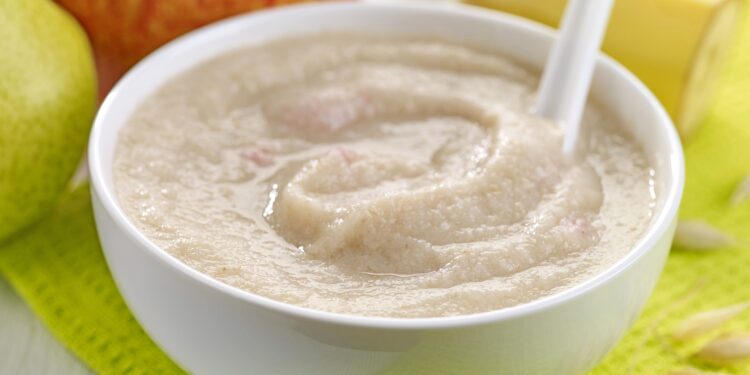Public warning: bacteria in baby food
In different baby food products of a Swiss company with a stress with harmful bacteria was found. Infections with these pathogens can lead to inflammation of the brain. It is advised not to feed babies these foods.

In Switzerland, a callback for baby has started food. In the products of dangerous bacteria were found, which can be harmful to health. The product has now been withdrawn from the market.
Microbiological contamination by Cronobacter
As the Swiss Federal food safety and veterinary office (fsvo) reported on its website, has been baby food in the Migros mibébé Cereals-products “mibébé rice porridge” and “mibébé wheat semolina” a microbiological contamination by Cronobacter was detected.
“A health risk cannot be excluded”, – stated there. The BLV is not recommended to feed babies with the affected products.
Affected are the following products were sold in Migros all over Switzerland:
- Grain mibébé rice porridge baby foods “” in the pack of 200 grams, item number: 521016800000, date of minimum durability: 15.07.2021
- Processed cereal-based foods “mibébé semolina Wheat” in the pack of 200 grams, item number: 521016900000, date of minimum durability: 12.08.2021
- Processed cereal-based foods “mibébé Good night milk porridge fruits” in the pack of 200 grams, item number: 521017000000, date of minimum durability: 14.07.2021
- Processed cereal-based foods “mibébé 5-grain porridge” in the pack of 200 grams, item number: 521015100000, date of minimum durability: 10.04.2021
Severe disease possible
Cronobacter bacteria, which can lead to the Bavarian state office for health and food safety (LGL), according to in people with a weakened immune response to all age groups of symptoms are.
The risk group, but in the main, children under six months, especially premature babies or diseases pre is damaged, a weakened immune system, infants.
Infection with Cronobacter can cause in infants and newborns, among other things, to Meningitis (inflammation of the brain) or Sepsis (blood poisoning); such diseases are usually associated with a high mortality rate.
“Parents have given their child from the affected product to eat should consult a pediatrician if the child shows any health problems,” writes the BLV. (ad)
